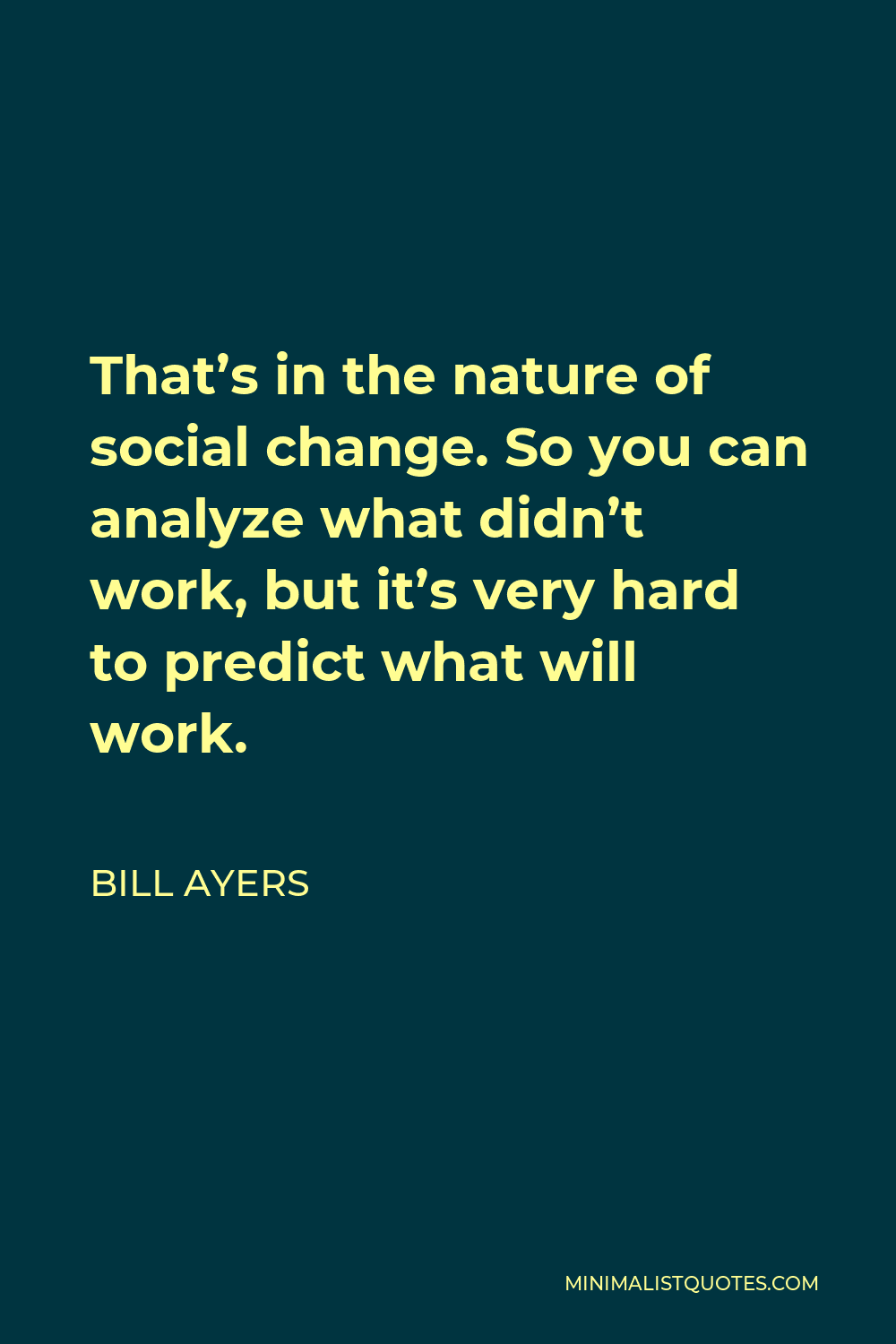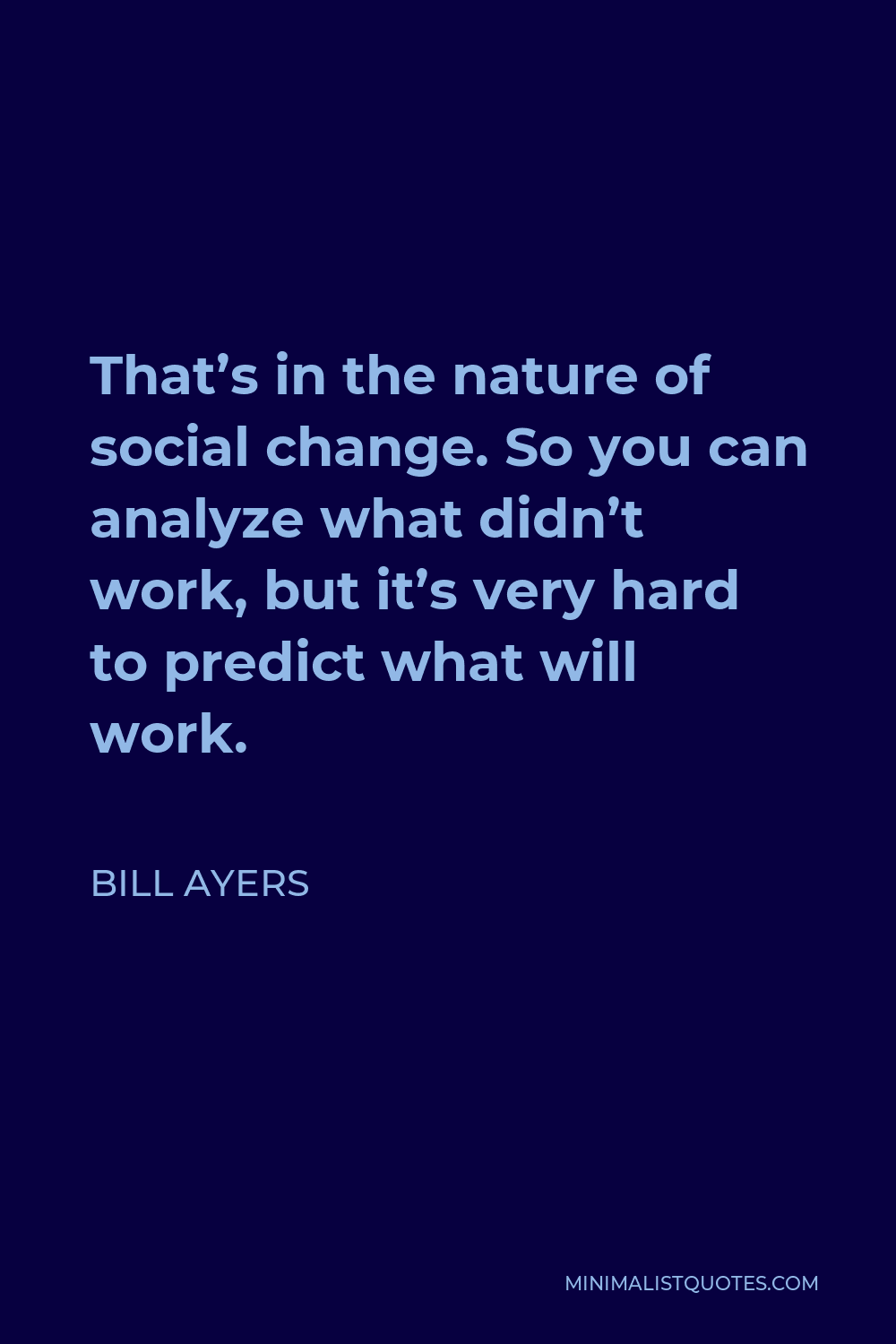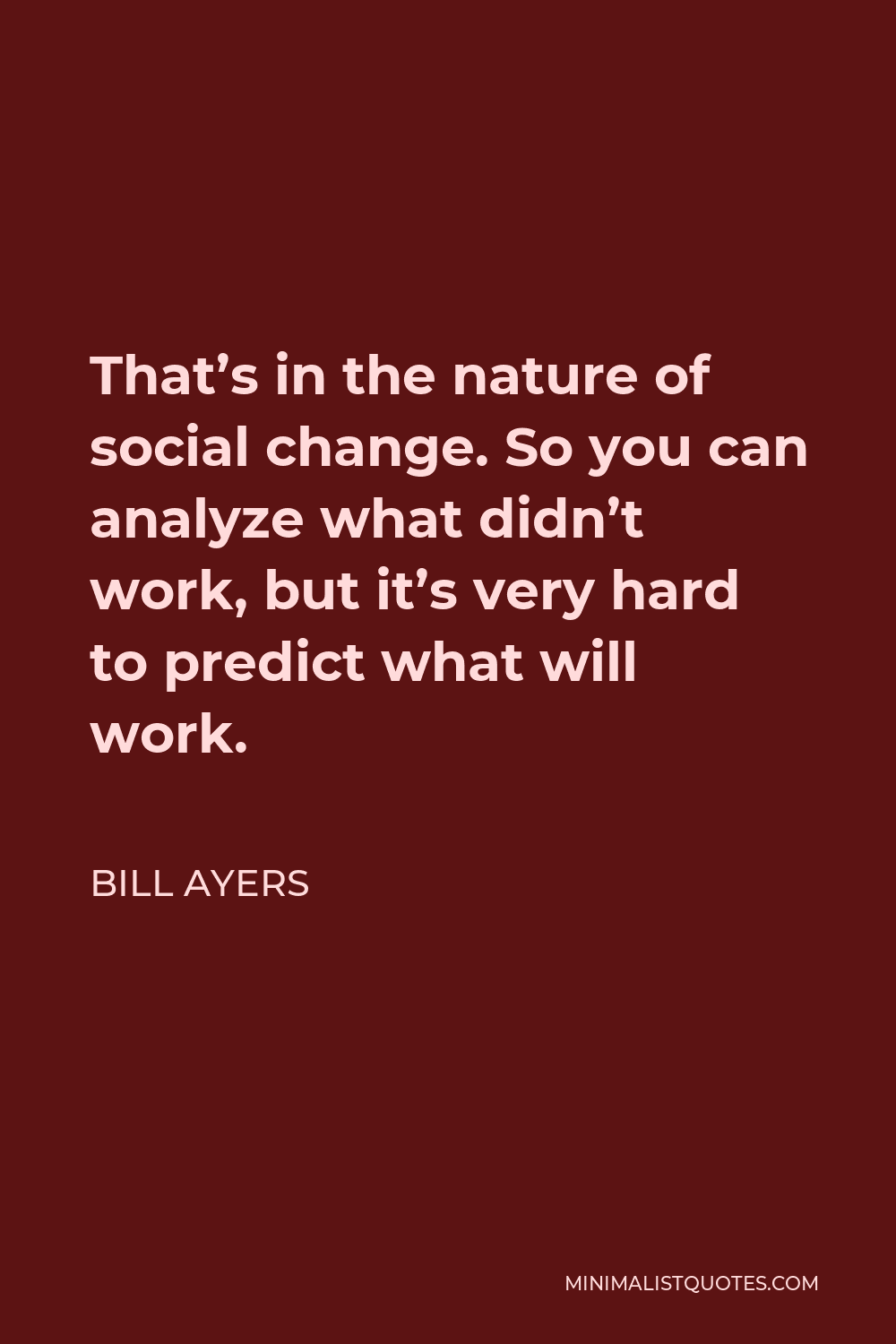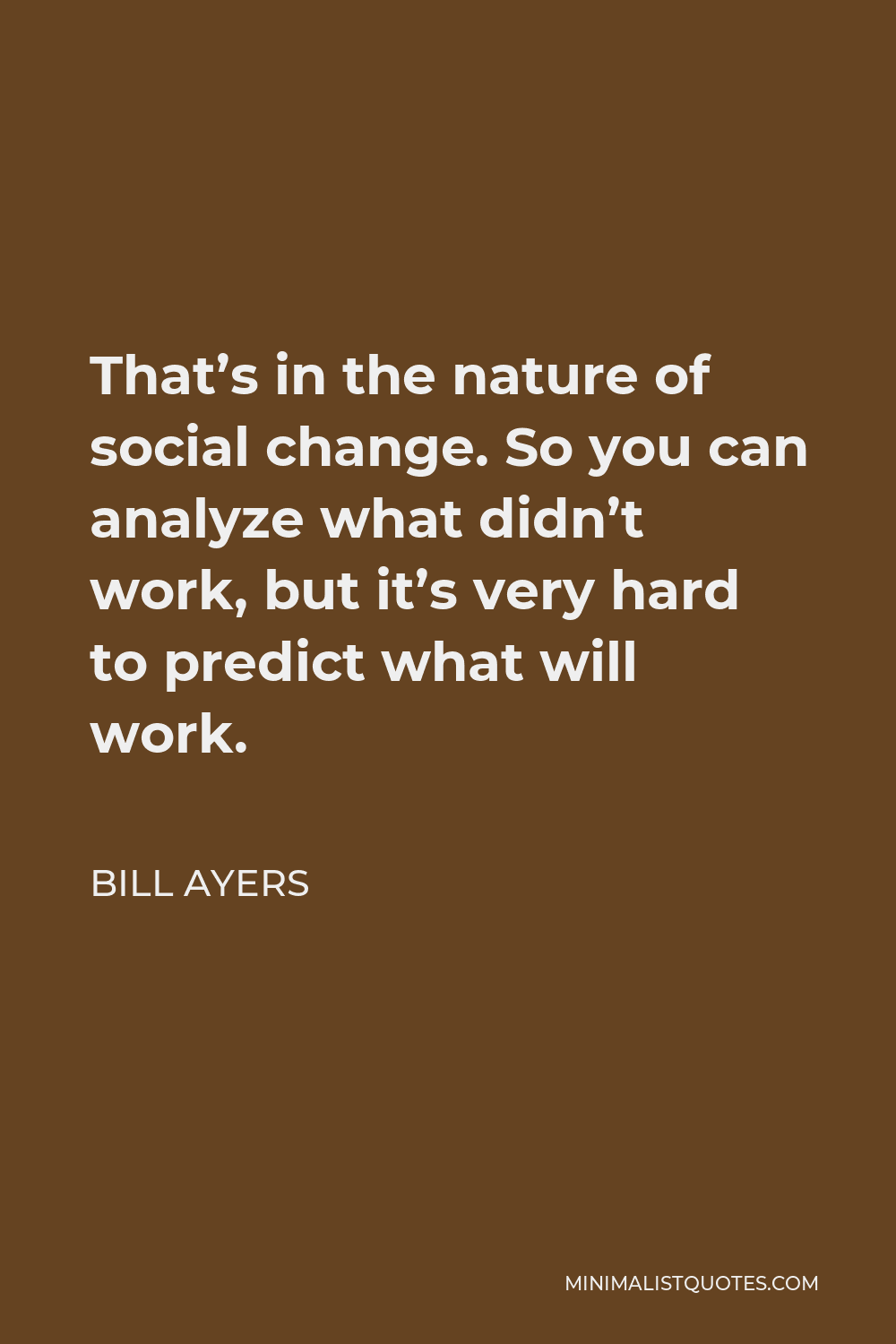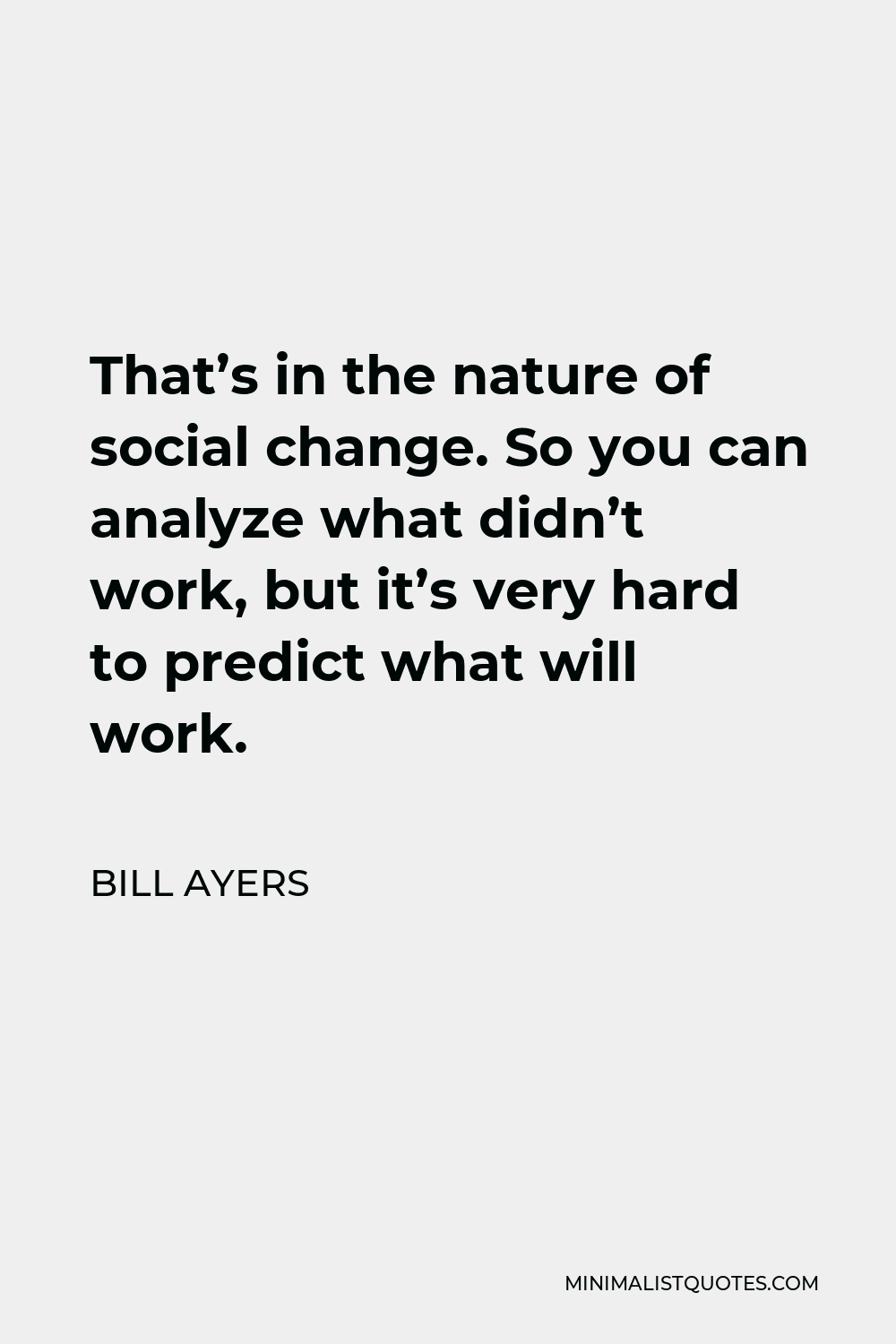The only path to the final defeat of imperialism and the building of socialism is revolutionary war.
BILL AYERSThat’s in the nature of social change. So you can analyze what didn’t work, but it’s very hard to predict what will work.
More Bill Ayers Quotes
-





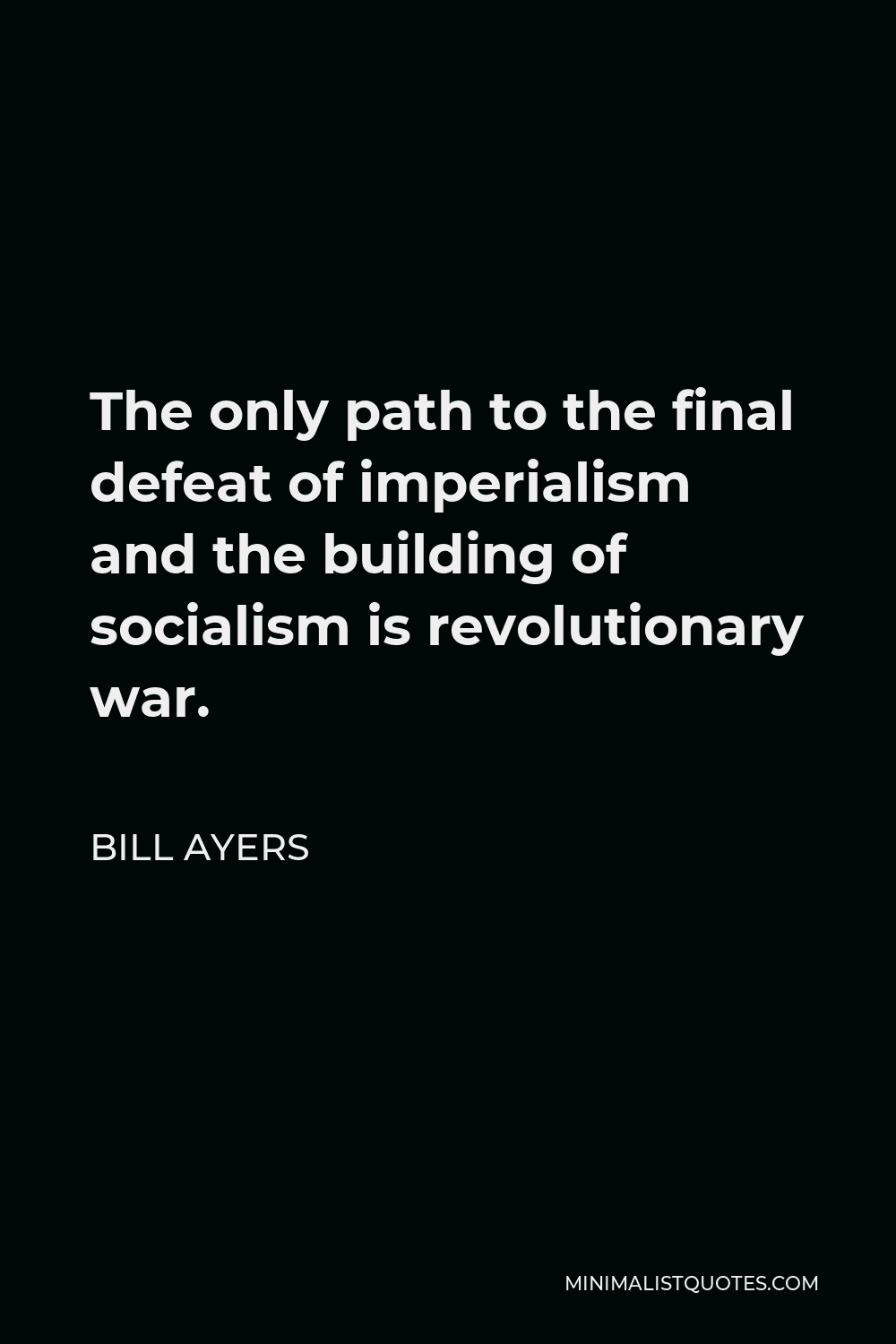
-





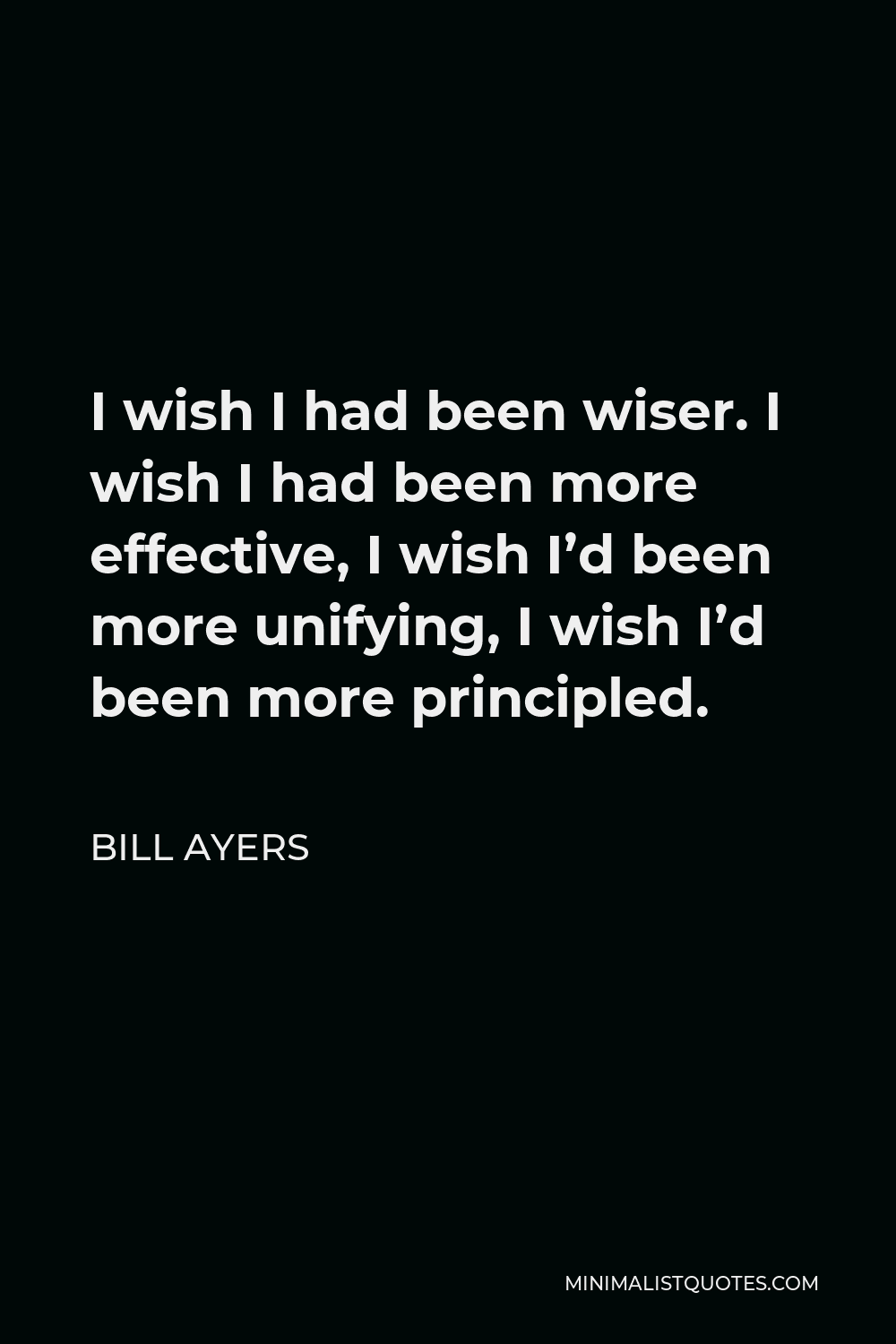
I wish I had been wiser. I wish I had been more effective, I wish I’d been more unifying, I wish I’d been more principled.
BILL AYERS -





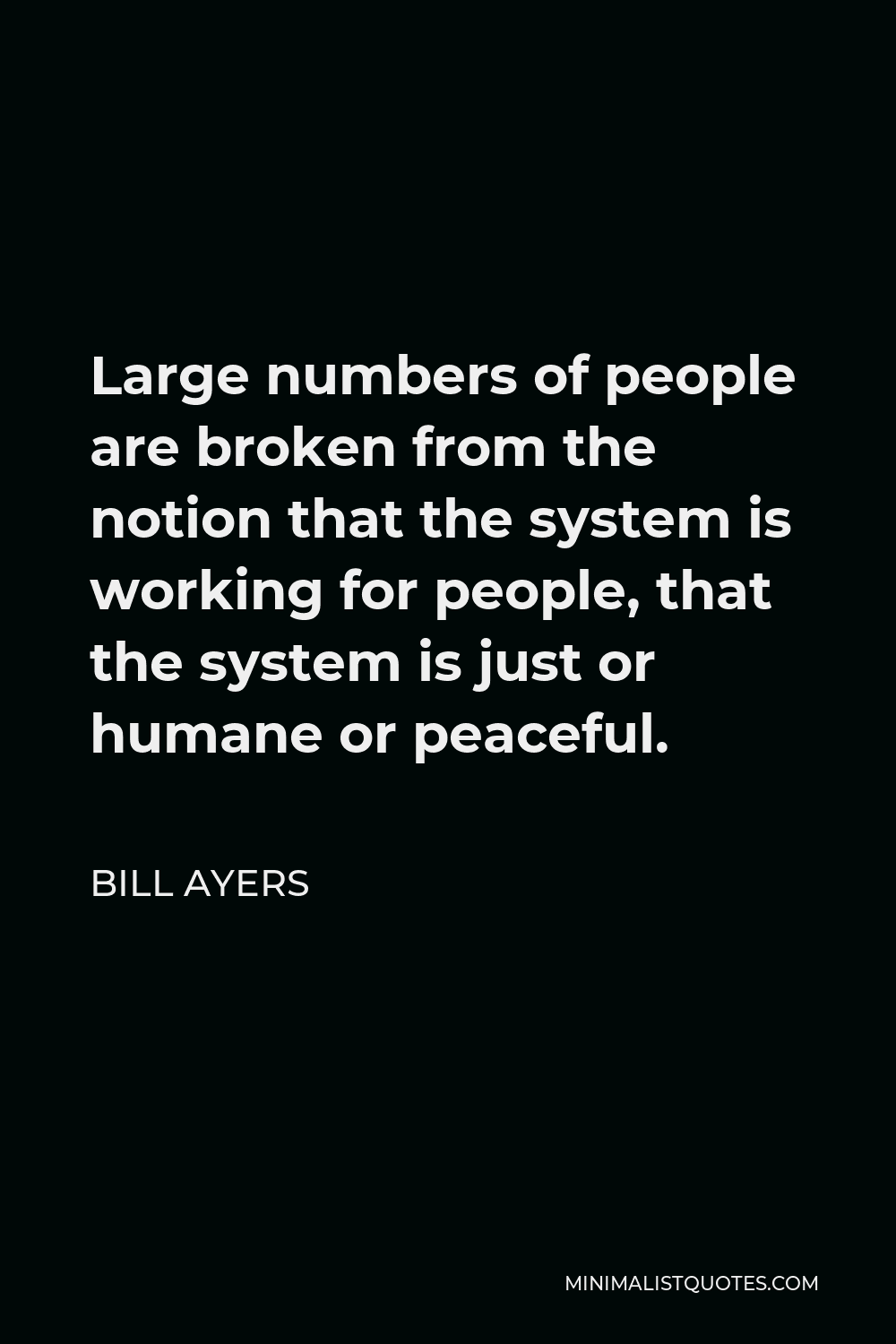
Large numbers of people are broken from the notion that the system is working for people, that the system is just or humane or peaceful.
BILL AYERS -





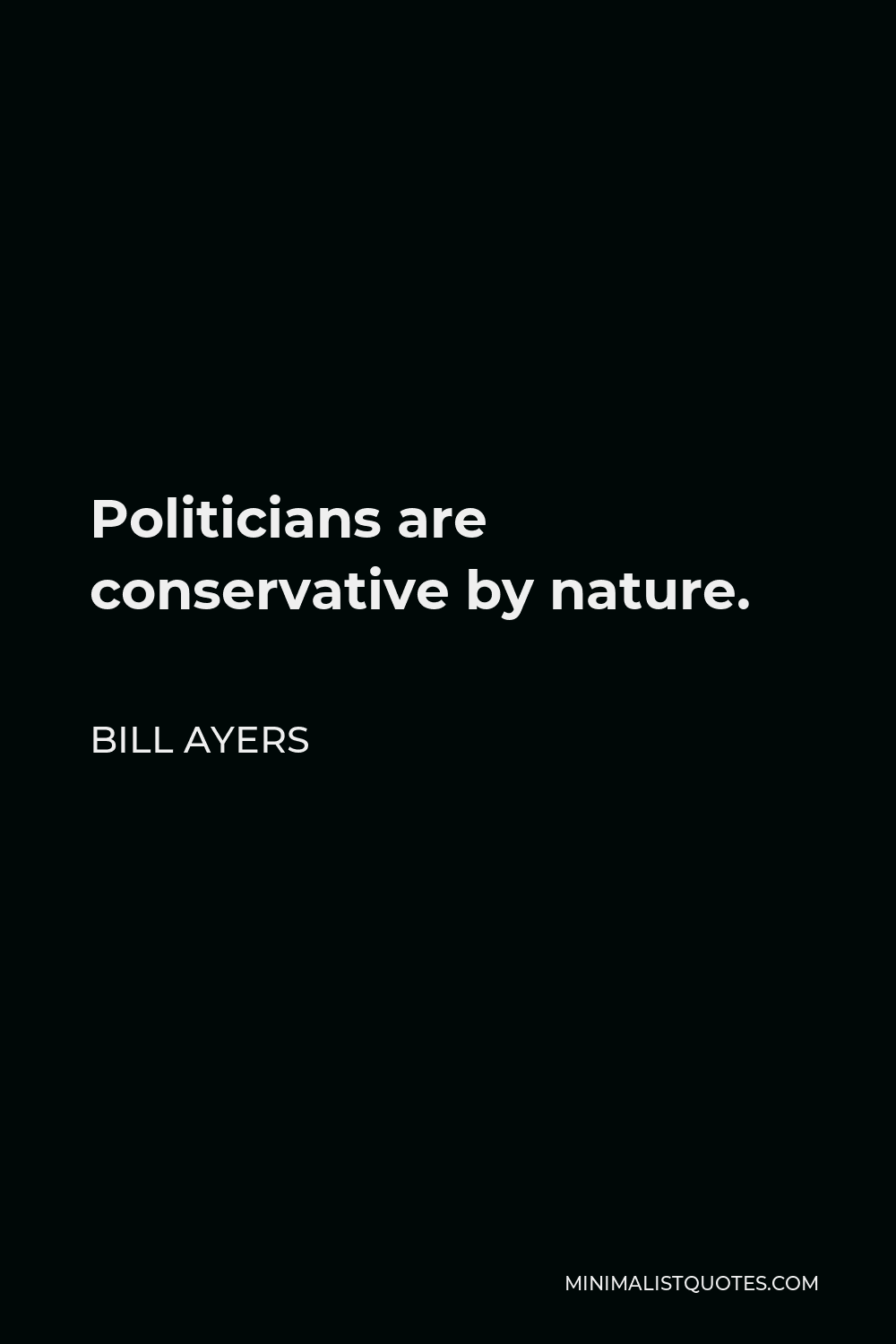
Politicians are conservative by nature.
BILL AYERS -





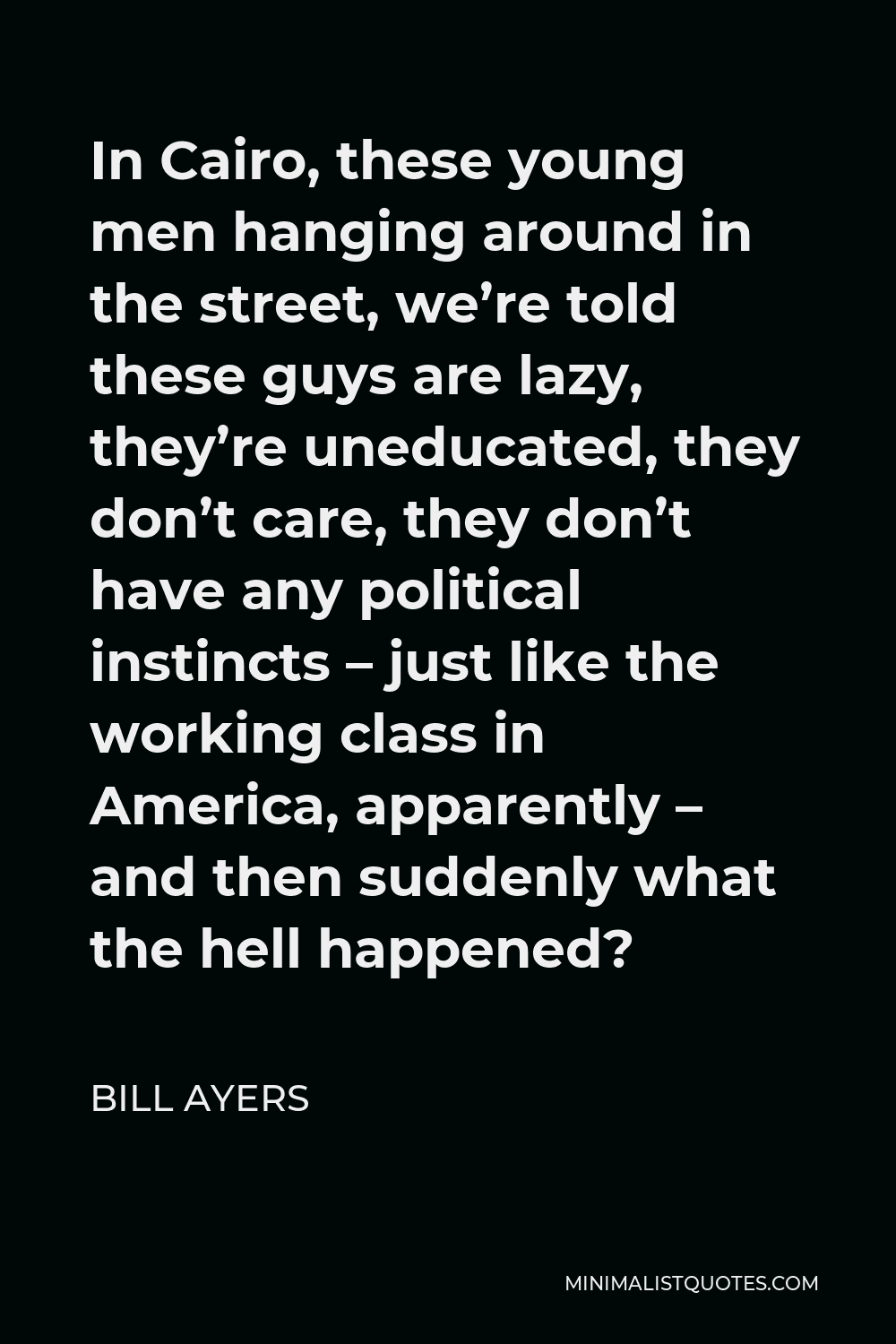
In Cairo, these young men hanging around in the street, we’re told these guys are lazy, they’re uneducated, they don’t care, they don’t have any political instincts – just like the working class in America, apparently – and then suddenly what the hell happened?
BILL AYERS -





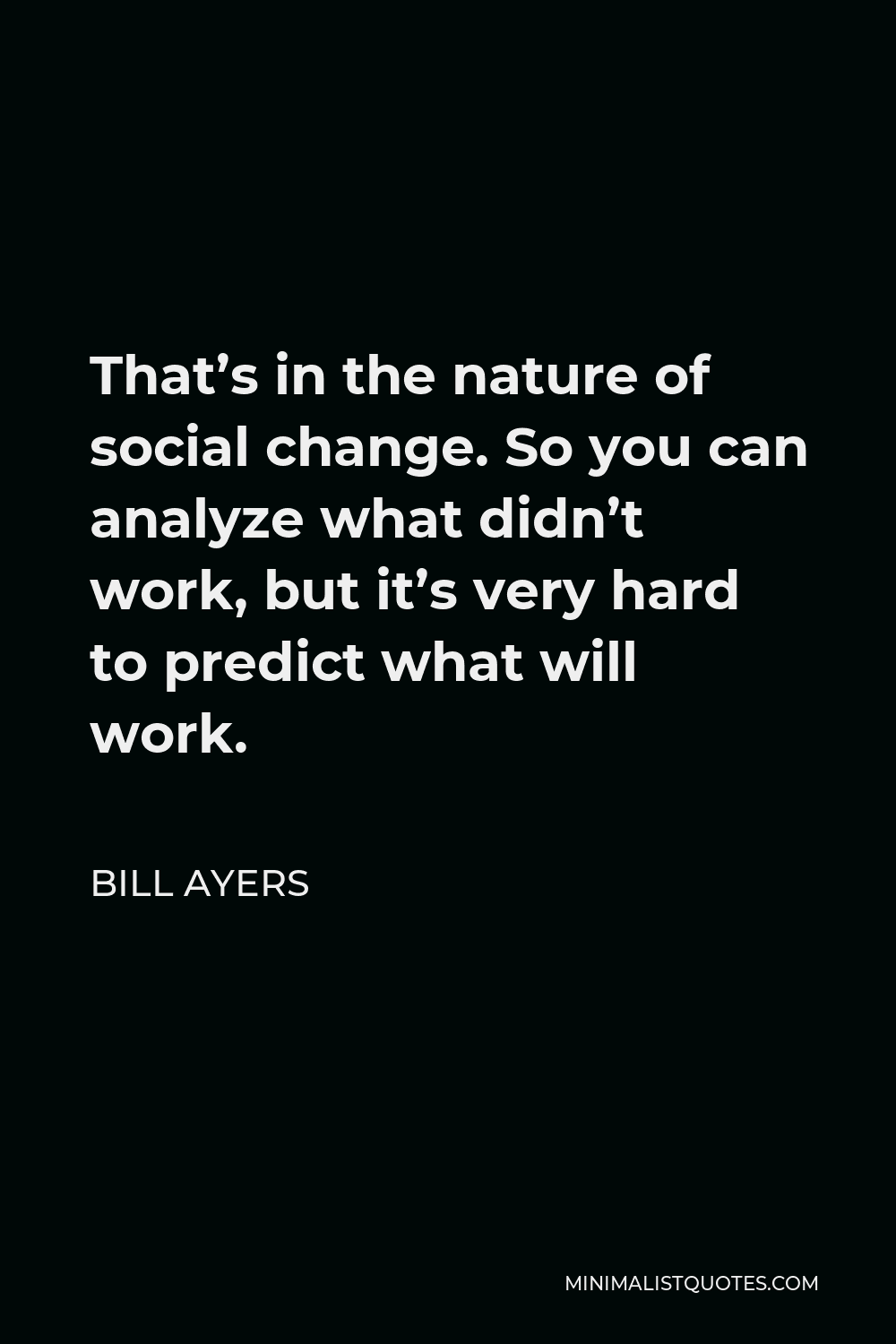
That’s in the nature of social change. So you can analyze what didn’t work, but it’s very hard to predict what will work.
BILL AYERS -





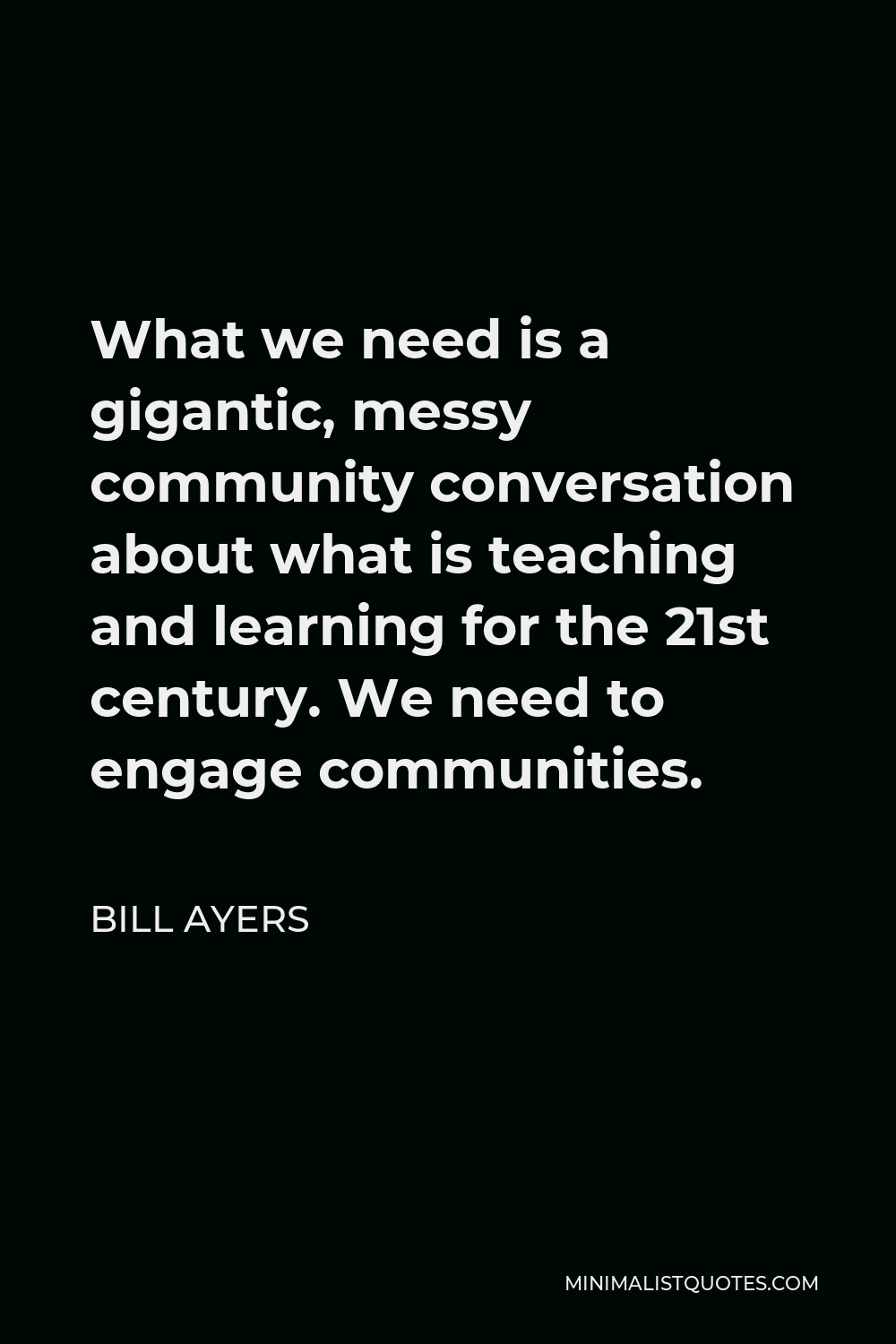
What we need is a gigantic, messy community conversation about what is teaching and learning for the 21st century. We need to engage communities.
BILL AYERS -







Terrorists destroy randomly.
BILL AYERS -





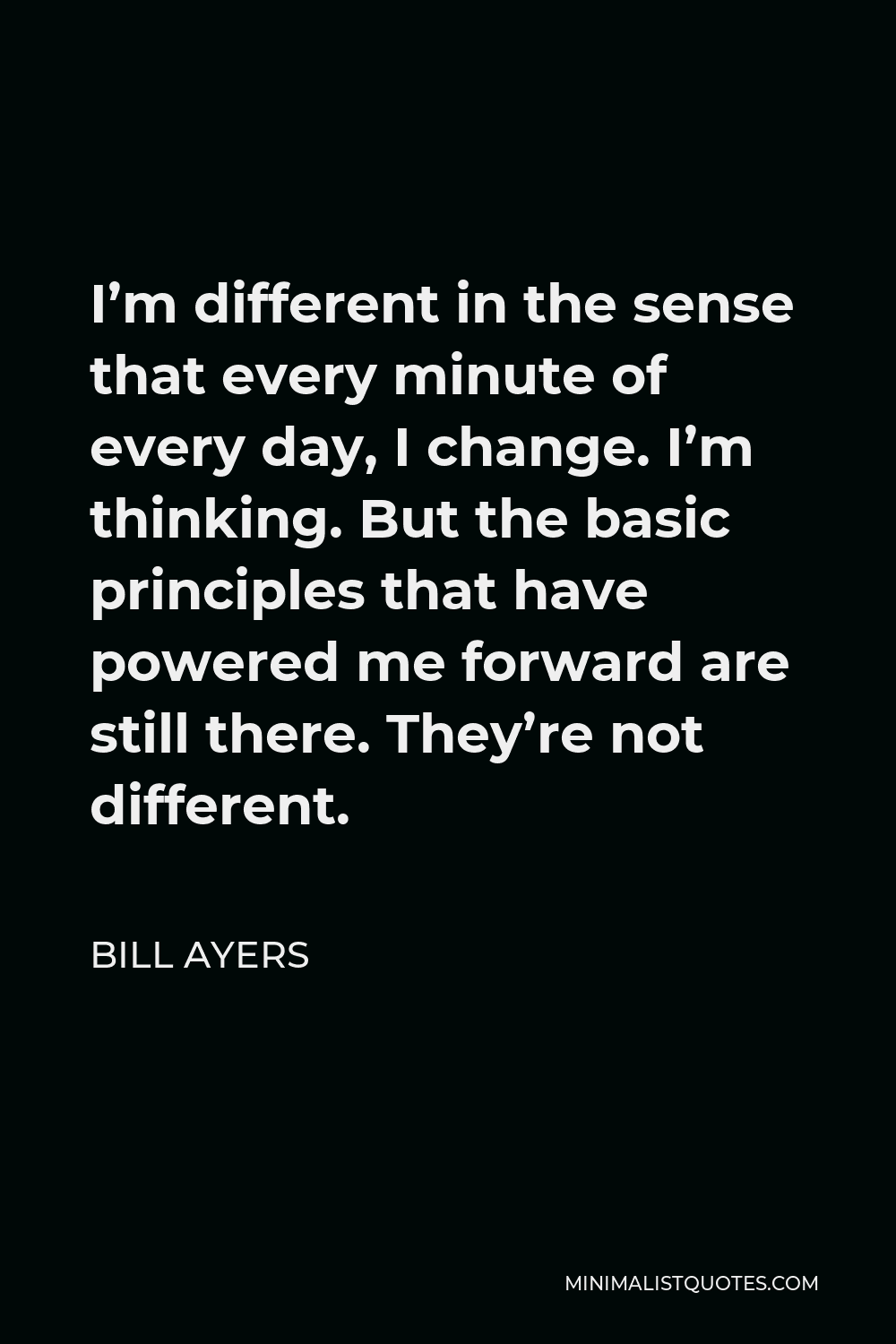
I’m different in the sense that every minute of every day, I change. I’m thinking. But the basic principles that have powered me forward are still there. They’re not different.
BILL AYERS -





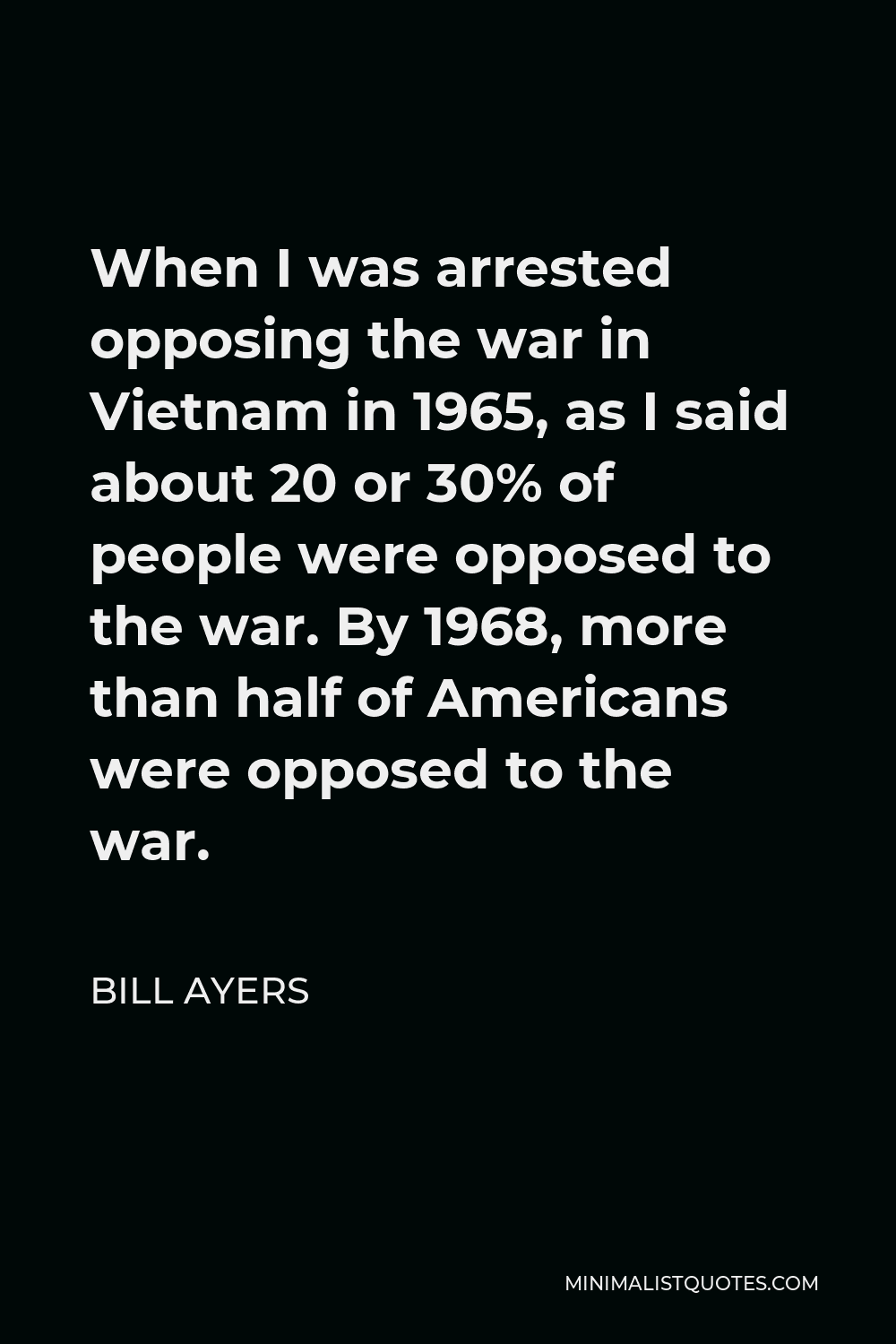
When I was arrested opposing the war in Vietnam in 1965, as I said about 20 or 30% of people were opposed to the war. By 1968, more than half of Americans were opposed to the war.
BILL AYERS -





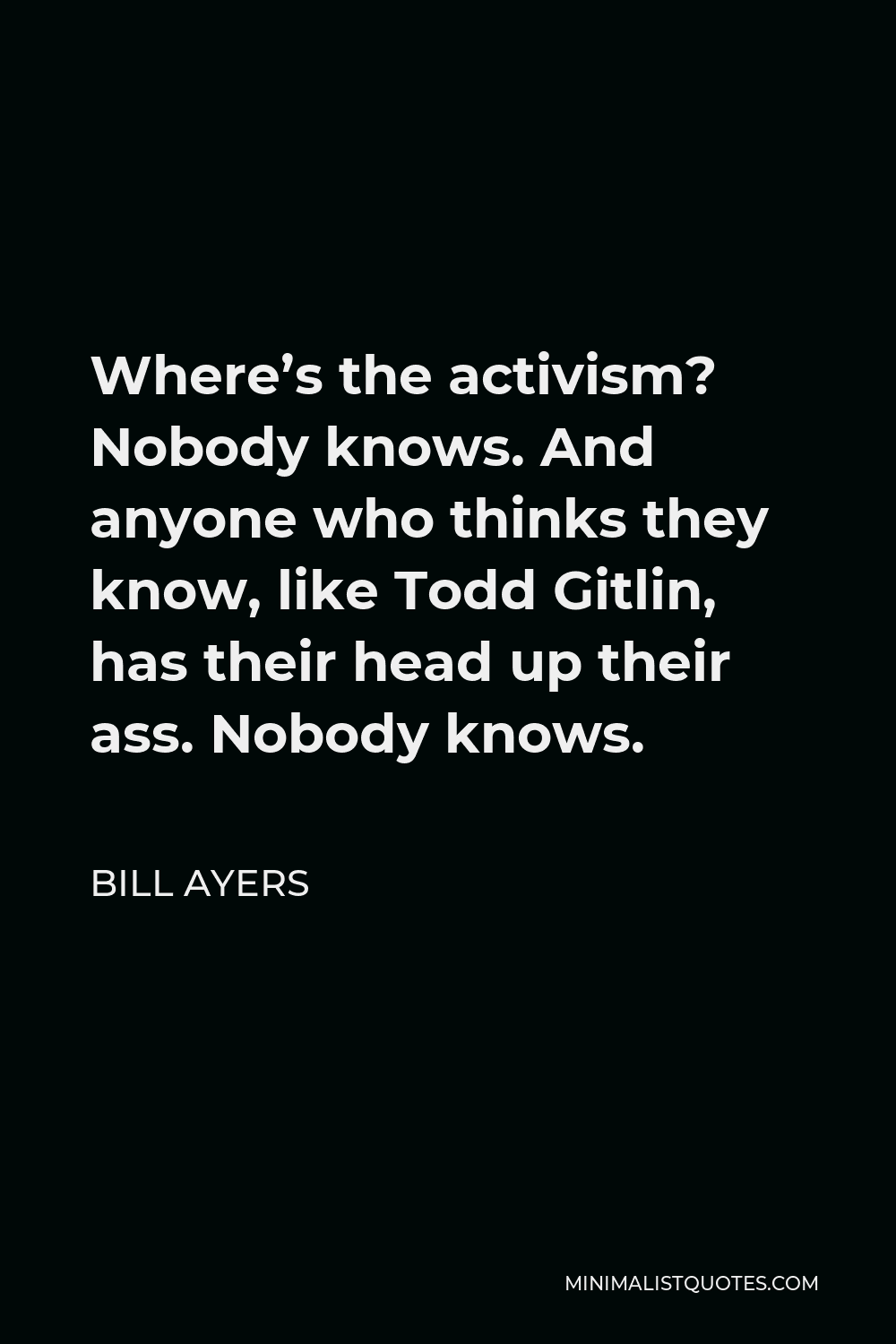
Where’s the activism? Nobody knows. And anyone who thinks they know, like Todd Gitlin, has their head up their ass. Nobody knows.
BILL AYERS -





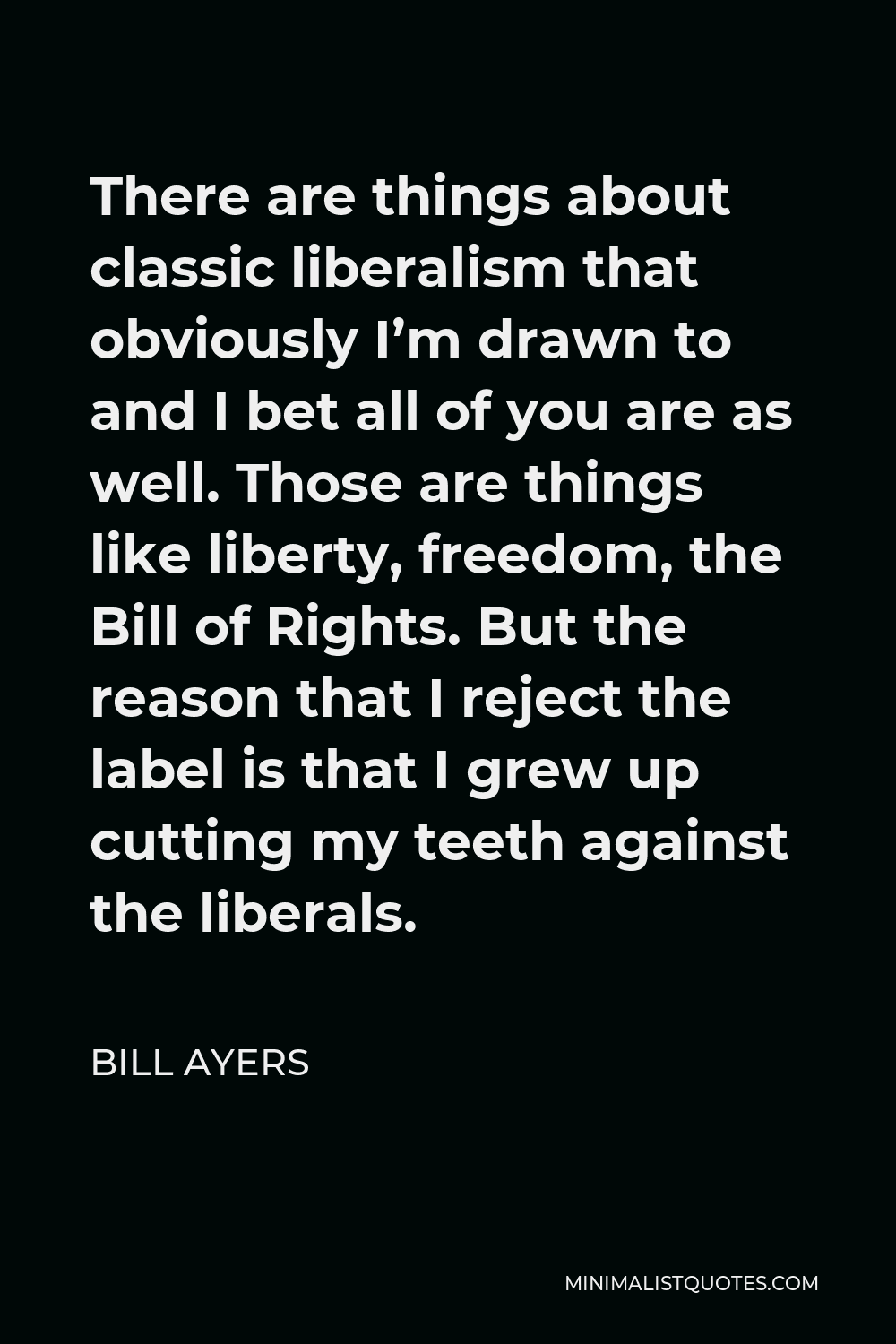
There are things about classic liberalism that obviously I’m drawn to and I bet all of you are as well. Those are things like liberty, freedom, the Bill of Rights. But the reason that I reject the label is that I grew up cutting my teeth against the liberals.
BILL AYERS -






The great example, the killer example in history, is of course Abraham Lincoln, the great emancipator. Read his speeches. Read the debates. Wendell Phillips called him “the great slaver from Illinois.”
BILL AYERS -





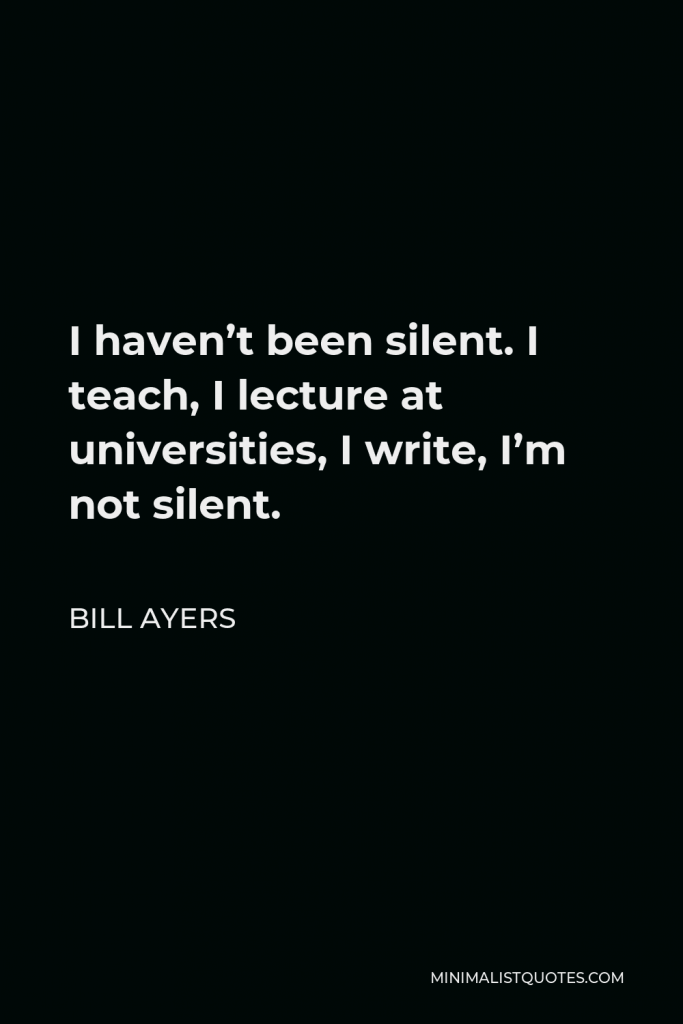

I haven’t been silent. I teach, I lecture at universities, I write, I’m not silent.
BILL AYERS -





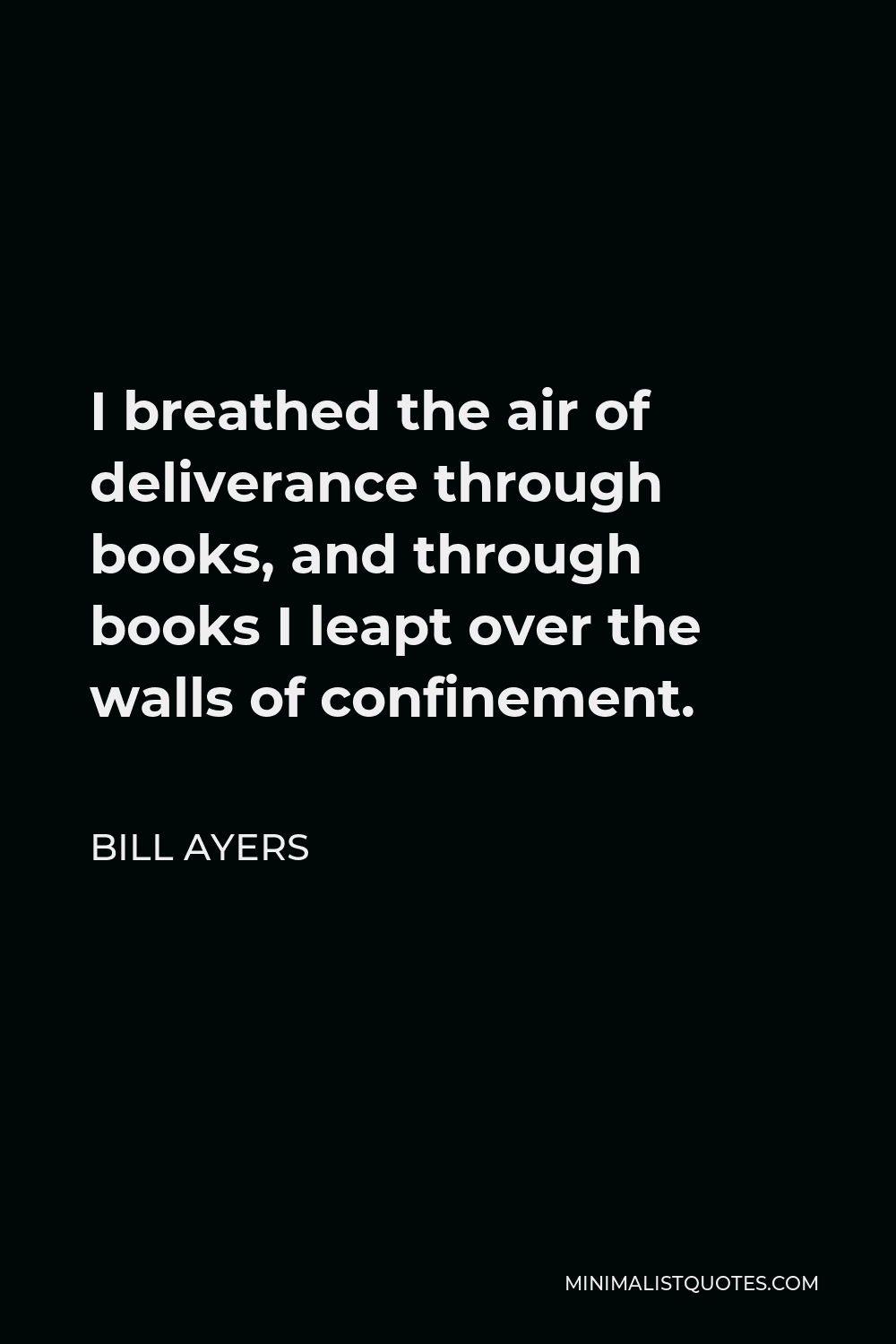
I breathed the air of deliverance through books, and through books I leapt over the walls of confinement.
BILL AYERS -





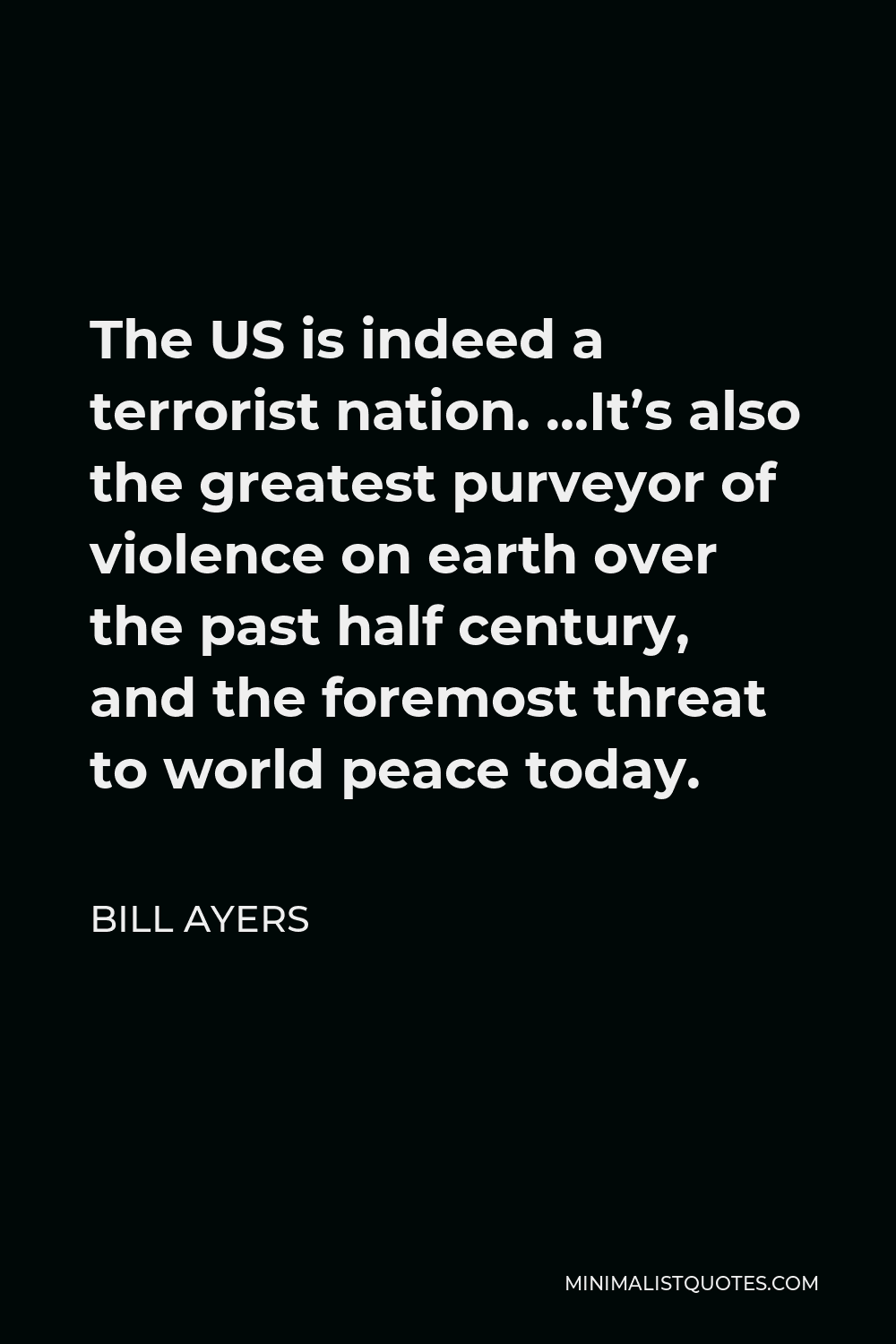
The US is indeed a terrorist nation. …It’s also the greatest purveyor of violence on earth over the past half century, and the foremost threat to world peace today.
BILL AYERS
